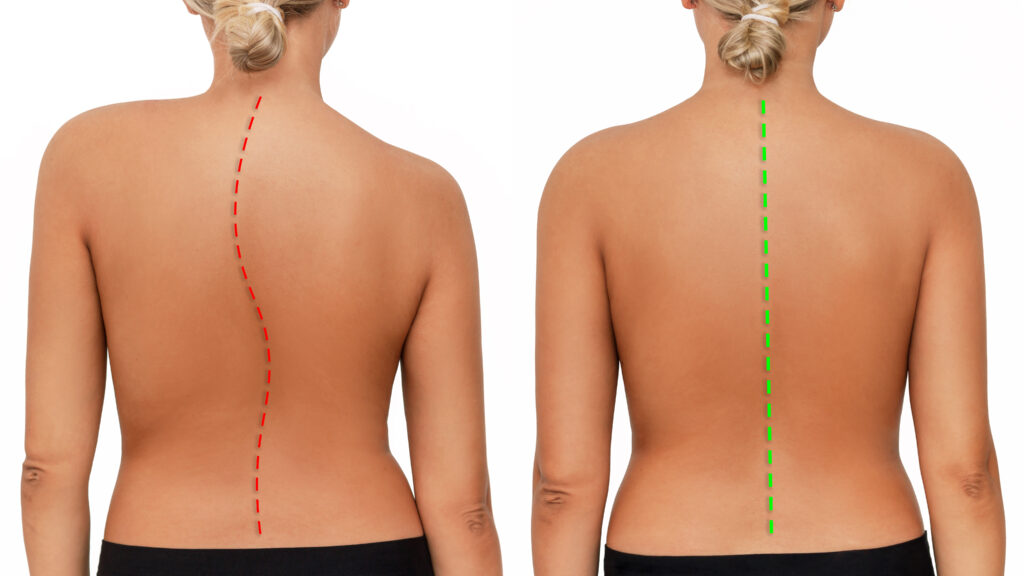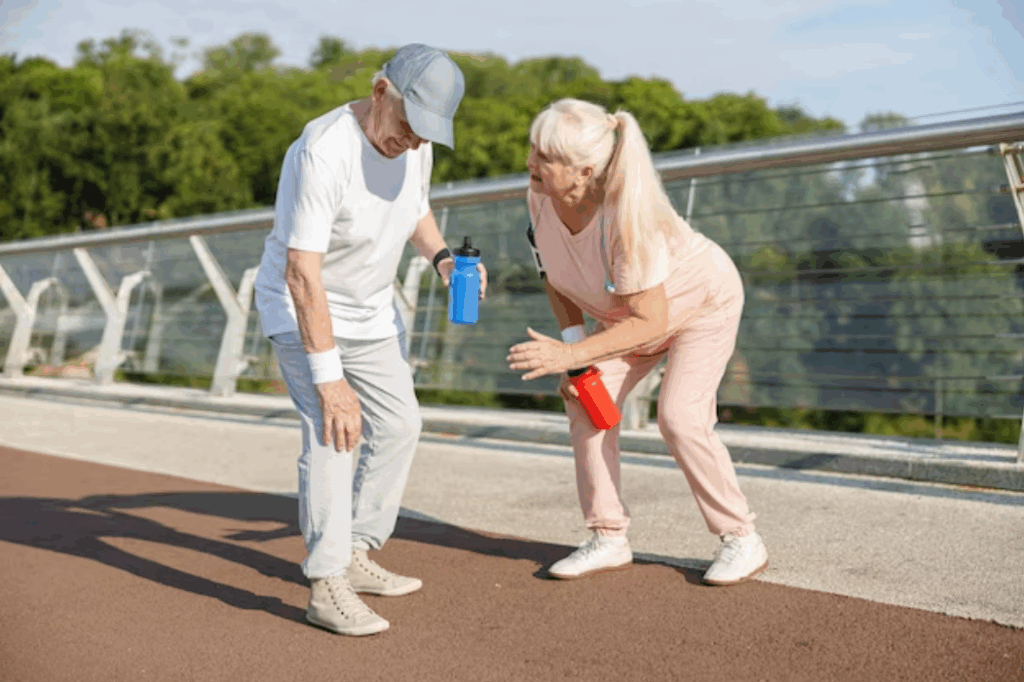When it comes to boosting your athletic recovery, having expert support can make all the difference. You might not realize how tailored guidance from coaches, nutritionists, and therapists can greatly enhance your performance. Each of these professionals contributes unique strategies that address your specific needs, ensuring you're not just resting, but truly recovering. But what exactly should you focus on to maximize these benefits? Understanding the key components of a solid recovery plan is essential, and it's worth exploring how they intertwine for ideal results.
Importance of Recovery
Recovery is an important aspect of athletic performance that you shouldn't overlook. When you push your body to its limits during training or competition, it's essential to allow time for recovery. This isn't just about resting; it's about restoring your body to best function. Without proper recovery, you risk injury, burnout, and reduced performance.
You've likely heard the saying, "no pain, no gain," but that doesn't mean you should ignore the signals your body sends you. Fatigue, soreness, and mental exhaustion can indicate that your body needs time to heal. Listening to these signals can help you avoid setbacks and maintain your progress.
Effective recovery strategies—like rest, stretching, and even light activity—can enhance your performance in the long run. Incorporating recovery into your routine can improve your strength, speed, and endurance. It allows your muscles to repair, reduces inflammation, and replenishes energy stores.
Additionally, taking time to recover can enhance your mental clarity and focus, which are essential for peak performance.
Role of Nutrition
Nutrition plays an essential role in your athletic recovery, influencing how quickly and effectively your body heals after intense training or competition. The right nutrients help repair muscle tissue, replenish glycogen stores, and reduce inflammation, all of which are essential for getting you back to peak performance.
First, focus on protein. Consuming adequate protein after your workouts is critical for muscle repair and growth. Aim for a source of high-quality protein, like lean meats, dairy, or plant-based options, within 30 minutes post-exercise. This timing maximizes muscle recovery and promotes the synthesis of new proteins.
Next, don't overlook carbohydrates. They're your body's primary energy source, and replacing glycogen stores after strenuous activity is necessary. Opt for complex carbs like whole grains, fruits, and vegetables, which provide sustained energy and important micronutrients for recovery.
Hydration is another key element. Dehydration can greatly hinder your recovery and performance. Drink plenty of water throughout the day, and consider electrolyte-rich beverages after intense workouts to replenish lost salts.
Lastly, include anti-inflammatory foods in your diet, such as fatty fish, nuts, and leafy greens. These can help reduce soreness and speed up recovery.
Keep in mind that each athlete's nutritional needs may vary, so listen to your body and adjust your intake based on your specific training demands.
Physiotherapy Techniques
When it comes to enhancing your athletic recovery, physiotherapy techniques can play an essential role. These methods not only help alleviate pain but also improve mobility, guaranteeing that you bounce back stronger after intense training or competition.
Here are three key techniques you should consider incorporating into your recovery routine:
1. Manual Therapy: This hands-on approach involves techniques like massage and joint mobilization. A skilled physiotherapist can manipulate soft tissues and joints to reduce tension, improve circulation, and promote healing.
You'll find that regular sessions can markedly enhance your flexibility and overall performance.
2. Therapeutic Exercises: Customized exercise programs can target specific muscle groups or areas of weakness. These exercises help in strengthening the muscles that support your joints, improving your stability and endurance.
Working closely with a physiotherapist guarantees you perform these exercises correctly, maximizing their benefits.
3. Electrotherapy: Utilizing electrical stimulation can aid in pain relief and muscle recovery. Techniques like TENS (Transcutaneous Electrical Nerve Stimulation) help reduce soreness and enhance blood flow to injured areas.
This can be particularly beneficial after rigorous workouts, expediting the healing process.
Mental Strategies for Recovery
When it comes to recovery, mental strategies can make a big difference.
You can enhance your healing process through visualization techniques, which help you imagine your success, and mindfulness practices that keep you present and focused.
Let's explore how these approaches can support your athletic recovery.
Visualization Techniques
Visualization techniques serve as powerful mental strategies for recovery, allowing athletes to harness their imagination in ways that accelerate healing and improve performance. By vividly picturing your goals and the process of recovery, you can create a positive mental environment that promotes healing.
Here are three effective visualization techniques to incorporate into your routine:
- Healing Imagery: Close your eyes and visualize your body healing. Picture the muscles, tendons, and joints repairing themselves, and imagine a warm, soothing light enveloping the affected areas. This imagery can promote relaxation and reduce tension.
- Performance Visualization: Imagine yourself performing at your best after recovery. Picture every detail, from the movement of your body to the cheers of the crowd. This technique builds confidence and reinforces the belief that you'll return stronger.
- Mindful Breathing with Visualization: As you breathe deeply, visualize the air as a healing energy flowing through your body. With each exhale, imagine releasing tension or pain. This combines the benefits of focused breathing with powerful mental imagery.
Mindfulness Practices
Mindfulness practices can greatly enhance your recovery by helping you stay present and focused on your healing journey. By incorporating techniques like meditation, deep breathing, and body scans, you can reduce stress and promote a state of relaxation, which is essential for recovery.
When you practice mindfulness, you're training your mind to acknowledge thoughts and feelings without judgment, allowing you to cultivate a more positive outlook on your healing process.
Set aside a few minutes each day to engage in mindfulness exercises. Start with deep breathing: inhale deeply through your nose, hold for a moment, and exhale slowly through your mouth. This simple practice can help center your thoughts and calm your nerves.
You might also try guided meditations specifically designed for athletes, which can help you visualize your recovery and reinforce your goals.
Integrating mindfulness into your daily routine not only aids recovery but can also enhance your overall mental resilience.
Benefits of Massage Therapy
Regularly incorporating massage therapy into your athletic recovery routine can greatly enhance your overall performance and well-being.
It's not just about relaxation; massage therapy offers tangible benefits that can help you bounce back faster and stronger after intense training sessions or competitions.
Here are three key advantages you'll experience:
- Improved Circulation: Massage helps increase blood flow, delivering essential nutrients and oxygen to your muscles. This enhanced circulation accelerates the healing process, reducing soreness and stiffness after workouts.
- Reduced Muscle Tension: Intense physical activity can lead to tight muscles, which may hinder your performance. Massage therapy effectively targets these areas, releasing tension and promoting flexibility. This can help you maintain your range of motion and prevent injuries.
- Enhanced Mental Focus: The benefits of massage extend beyond your body. It can help reduce stress and anxiety, allowing you to clear your mind and focus on your training or competition. By promoting relaxation, massage therapy can improve your overall mental resilience, enabling you to perform at your best.
Incorporating regular massage therapy into your routine not only supports physical recovery but also nurtures your mental state.
By investing in professional massage, you're taking a proactive step toward optimizing your athletic performance.
It's a simple yet powerful way to guarantee you're always ready to tackle your next challenge.
Sleep and Recovery
After a good massage, the next step in your athletic recovery is ensuring you get quality sleep. Sleep isn't just a time for your body to rest; it's when your muscles repair and rebuild. If you want to maximize your recovery, prioritize your sleep schedule as much as your training routine.
Aim for 7-9 hours of uninterrupted sleep each night. This duration allows your body to cycle through the various sleep stages, particularly deep sleep, which is essential for muscle recovery. When you skimp on sleep, you increase your risk of injury and hinder your performance. Fatigue can lead to poor decision-making and slower reaction times, which can be detrimental in any sport.
Create a sleep-friendly environment by keeping your bedroom dark, cool, and quiet. Consider using blackout curtains or a white noise machine if ambient light or sounds disrupt your rest.
Establish a calming pre-sleep routine—this might include stretching, reading, or practicing relaxation techniques to signal to your body that it's time to wind down.
Also, be mindful of your caffeine intake and avoid consuming it in the hours leading up to bedtime. Instead, opt for herbal teas or other non-caffeinated beverages.
Hydration and Performance
Staying hydrated is essential for your athletic performance and recovery.
It impacts everything from your endurance to your ability to recover after a tough workout.
Let's explore effective hydration strategies and the role of electrolytes in supporting your body.
Importance of Hydration
Hydration's role in athletic performance can't be overstated. When you're well-hydrated, you're primed to perform at your best, while even slight dehydration can hinder your efforts. Water is essential for various bodily functions that directly impact your athletic performance.
Consider these three key points:
- Temperature Regulation: Staying hydrated helps your body regulate temperature, preventing overheating during intense workouts or competitions. This can lead to improved endurance.
- Nutrient Transport: Proper hydration guarantees that nutrients are efficiently transported to your muscles. This is vital for maintaining energy levels and enhancing recovery post-exercise.
- Joint Lubrication: Water acts as a lubricant for your joints, reducing friction and promoting better movement. This can help prevent injuries and improve overall performance.
Hydration Strategies for Athletes
To maximize athletic performance, you need effective hydration strategies that keep your body functioning at its best. Start by drinking water consistently throughout the day, not just during workouts. Aim for at least half your body weight in ounces daily.
Before exercise, hydrate well; drink about 16 to 20 ounces two to three hours before your activity. During workouts, sip on water every 15 to 20 minutes, especially for sessions lasting over an hour.
After exercising, rehydrate to replace lost fluids. Consume 16 to 24 ounces of water for every pound lost during the activity. Keep track of your hydration by monitoring urine color; light yellow indicates good hydration, while dark yellow suggests you need more fluids.
In addition to water, consider your workout intensity and duration. For longer or more intense sessions, you might want to incorporate sports drinks that provide carbohydrates and help maintain your energy levels.
Always listen to your body; thirst is a clear signal that you need to hydrate. By implementing these strategies, you'll enhance your performance and recovery, helping you reach your athletic goals more effectively.
Electrolytes and Performance Recovery
Electrolytes play an essential role in performance recovery, especially after intense workouts. When you sweat, you lose not just water but also important minerals like sodium, potassium, and magnesium. Replenishing these electrolytes can greatly enhance your recovery process and overall performance.
Here are three key reasons to focus on electrolytes after exercising:
- Muscle Function: Electrolytes help transmit signals in your body that are essential for muscle contractions. Replenishing them can prevent cramps and improve muscle performance.
- Hydration Balance: Electrolytes maintain fluid balance in your cells. Without adequate levels, you may experience dehydration, which can hinder your recovery and lead to fatigue.
- Nerve Function: Proper electrolyte levels support nerve function, enabling better communication between your brain and muscles. This can lead to improved coordination and quicker reaction times during your next workout.
Integrating electrolyte-rich foods or drinks into your post-workout routine can make a considerable difference.
Building a Support Team
Creating a strong support team is essential for maximizing your athletic recovery. Surrounding yourself with the right people can make a significant difference in your performance and well-being. Start by identifying key professionals who can contribute to your recovery process, such as a coach, a physical therapist, and a nutritionist. Each of these experts brings unique insights that can help you recover more effectively.
Your coach plays an important role in tailoring training programs that align with your recovery needs. Communicate openly about your goals and any concerns you might have; they can adjust your workouts accordingly to prevent overtraining or injury.
A physical therapist is critical for addressing any injuries or discomfort you may experience. They can provide personalized rehabilitation exercises and modalities that target your specific issues, ensuring you recover safely and efficiently. Regular check-ins with your therapist can keep you on track and help you avoid future injuries.
Don't overlook the importance of nutrition in your recovery journey. A nutritionist can help you develop a meal plan that supports your energy needs and optimizes recovery. They'll guide you in choosing the right foods and supplements to replenish nutrients lost during training.
Finally, consider including fellow athletes, friends, or family members in your support team. Their encouragement and understanding can motivate you during difficult times. By building a diverse support network, you'll enhance your recovery, improve performance, and enjoy the journey of athleticism even more.
Conclusion
Incorporating expert support into your recovery routine can make all the difference. By focusing on nutrition, utilizing physiotherapy, and prioritizing mental strategies, you'll enhance your performance and prevent injuries. Don't underestimate the power of massage therapy, quality sleep, and hydration in your recovery process. Finally, build a strong support team to keep you motivated and accountable. With the right resources and mindset, you'll bounce back stronger and ready to tackle your next challenge.



